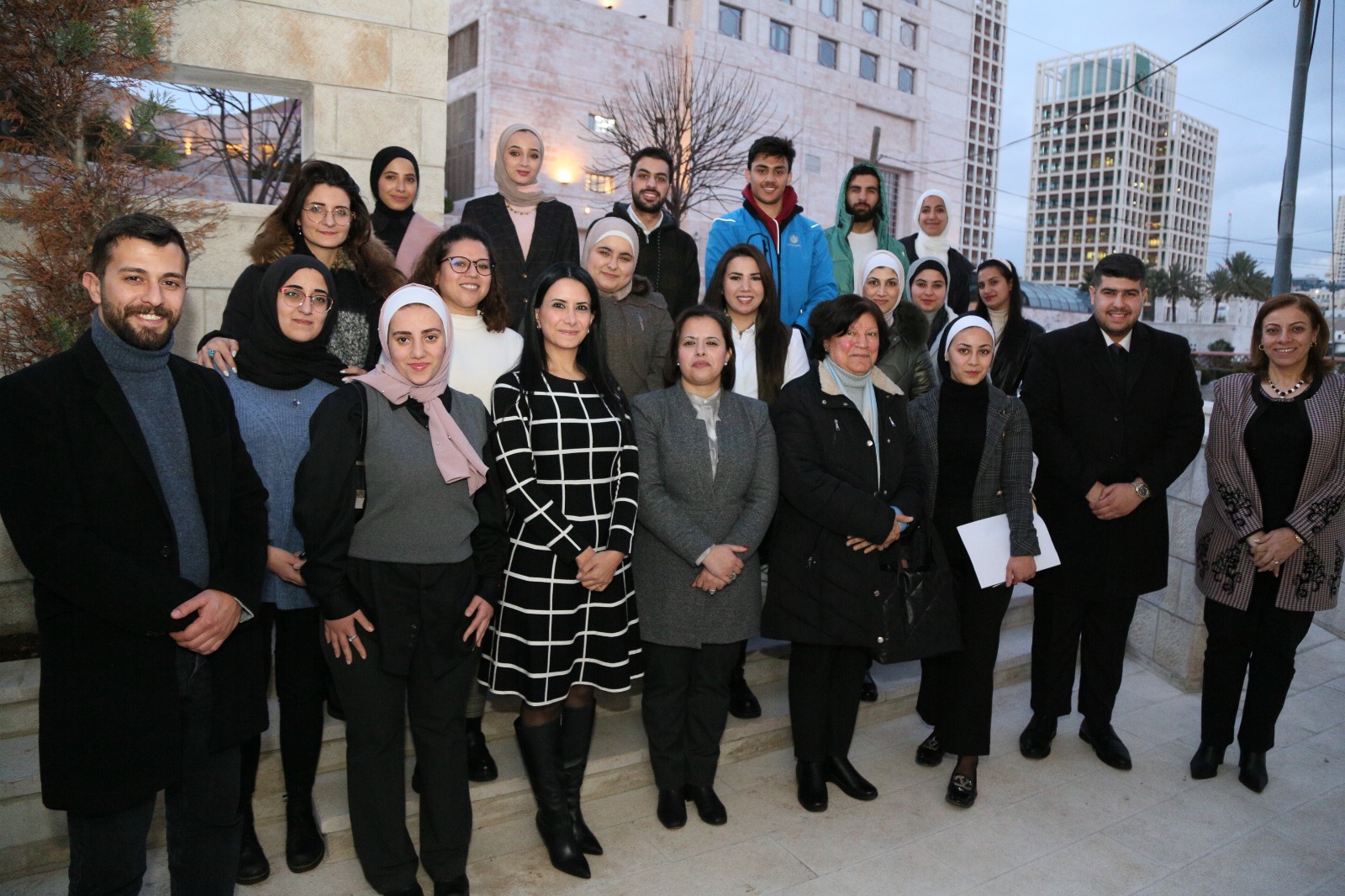Women in Jordan’s private sector hold less than 5% of board positions, while about 78% of companies do not have any women as board members. Moreover, women make up only 9.1% of the senior management of companies, demonstrating that Jordan with these figures ranks at the lowest levels in the world when compared to other countries in the Arab region, according to UN Women.
For a deeper understanding of the inequality between women and men in leadership roles and positions in the Kingdom, and to understand the obstacles that prevent women’s participation in the political sphere, the Arab Renaissance for Democracy and Development (ARDD), as part of the second phase of the Youth Participation Policy Lab series, held a policy session entitled: “Women’s Leadership in Jordan: Where does the gap lie?” on Sunday, February 4, 2024, which featured a speech by politician and first secretary of the Jordanian People’s Democratic Party, Abla Abu Ulba, and was moderated by Associate Professor of Women’s Studies at the University of Jordan, Dr. Amani Al-Sarhan.
The Policy Lab, held by ARDD in cooperation with the Center for Strategic Studies at the University of Jordan, comes within the framework of the New Generation project to enhance the concepts of civic and political participation among students of the faculties of political science and law at the University of Jordan, as well as providing them with practical experience that would help broaden their business horizons in the future, introducing them to experts and institutions specialized in this field, and helping them make their voices heard in policy-making and effective positive communication with decision-makers.
Speaking about the Policy Lab, CEO of ARDD, Samar Muhareb, explained that the lab in its first phase focused on the doorways, directions, and methods of political and civic participation for young women and men, and its connection to human rights, freedom of opinion and expression, and social justice. She then went on to explain that we are now going into the details of this participation in terms of societal norms and their impact on the political participation of youth and the gap in leadership positions between men and women, stressing the need to search for new concepts, inputs, and outputs to add to the field of civic and political work.
On women’s leadership in Jordan, Sarhan explained that despite Jordan’s progressive aspirations to support women’s political participation and leadership, there is still a gap in their political, economic, and social representation, as Jordanian women rank third in the Arab world, and 110th globally on the Women’s Power Index set by the Council on Foreign Relations, which indicates that there are obstacles to achieving justice between women and men, including: The problem of the discourse directed at women, power structure, and the formation and intersection of identities.
Sarhan reminded of the beginnings of the political space and the global feminist struggle, which dates back to the nineteenth and early twentieth centuries, and sought to ensure women’s right to vote, female education rights, better working conditions, and the abolition of double standards of equality between men and women, indicating that the idea of political participation at the time came to emphasize the right of women to have representation in the public space, like all their other rights.
In turn, Abu Ulba pointed out that the most important tool for women’s effective participation in political affairs is “obtaining knowledge”, whether through reading or research and follow-up at all levels, especially that we are living a social development movement today, and there are laws regulating political life and parties, stressing in this context the need to enhance educational opportunities for women, and to fight for equal opportunities between women and men.
Abu Ulba also drew attention to the importance of fieldwork for women in society and being in touch with people’s issues, rejecting the statement that women are “victims of discrimination, customs, and traditions”, as this depends, according to her, on hard work, diligence, perseverance, addressing society with persuasion, and adhering to principles, whether in political or union work, and in any other form of social work.
In response to a question about women’s participation in leftist parties in particular, Abu Ulba pointed out that leftist and nationalist parties founded the Arab women’s trade union movement because they based their objectives on the values of justice and equality, as well as focusing their discourse on the importance of women’s positive involvement in all forums alongside men.
Through the discussions with Sarhan and Abu Ulba, the youth came out with many proposals and visions during the lab, starting with the fact that the current generation must adhere to the democratic solution in dealing with their problems, and that a person’s value lies in what he or she produces in the fields of science, culture, and politics, as well as the need to think about the geopolitical transformations and changes that occur in our world, and to make sure there are new roles for young people in the political arena, in addition to the importance of increasing communities’ awareness of women’s leadership and their ability to bring about change. The participants also called for our societal discourse to be progressive and based on equality between women and men, while activating the role of drama, art, and media as means to solve societal problems, leading to the need for cooperation between all parties to enhance the presence of women in decision-making in all fields.


